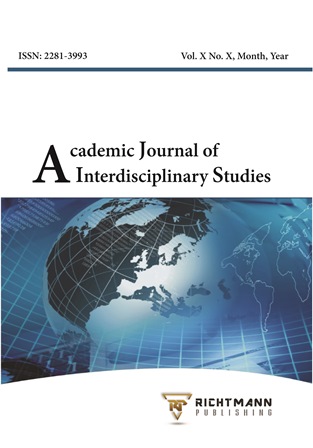Systematization of the Experience of Social Actors in the Accompanying Family Strategy in a Hospital, Lima-Peru
DOI:
https://doi.org/10.36941/ajis-2023-0174Keywords:
Strategy- Family Companion- Systematization-Experience-Social ActorsAbstract
The objective of the study was to reveal the systematization of the experience of the social actors involved in the development of the Accompanying Family Strategy in level II and III hospitals of the Almenara Benefit Network in Lima, analyzed from the qualitative paradigm, through systematization of approach experiences dialectical hermeneutic. 27 social actors participated with whom we worked on semi-structured interviews and group discussion. A field diary was applied and a documentary analysis form was carried out that allowed the experience to be reconstructed. The results obtained on the Accompanying Family strategy emerged nine categories: 1) learning to care; 2) family disposition for training the primary caregiver; 3) institutional commitment at all levels. About obstacles; 4) Accompanying Family Strategy, investment, resources and attitudes make the difference. Placing proposals, 5) logistics management with budget honesty and 6) celebrating strategic alliances. Concerning the impact; 7) constructed learning; 8) EsSalud empowers the family and interdisciplinary team and 9) continuity of the experience. It was concluded that it contributes to social transformation in favor of well-being and healthy aging, recommending continuing the development of the Strategy, successful, although not free of contradictions. contributes to social transformation by strengthening family ties, promoting a culture of intergenerational care and reducing the institutionalization of older people. 5) logistics management with budget honesty and 6) celebrating strategic alliances. Concerning the impact; 7) constructed learning; 8) EsSalud empowers the family and interdisciplinary team and 9) continuity of the experience. It was concluded that it contributes to social transformation in favor of well-being and healthy aging, recommending continuing the development of the Strategy, successful, although not free of contradictions. contributes to social transformation by strengthening family ties, promoting a culture of intergenerational care and reducing the institutionalization of older people. 5) logistics management with budget honesty and 6) celebrating strategic alliances. Concerning the impact; 7) constructed learning; 8) EsSalud empowers the family and interdisciplinary team and 9) continuity of the experience. It was concluded that it contributes to social transformation in favor of well-being and healthy aging, recommending continuing the development of the Strategy, successful, although not free of contradictions. contributes to social transformation by strengthening family ties, promoting a culture of intergenerational care and reducing the institutionalization of older people. It was concluded that it contributes to social transformation in favor of well-being and healthy aging, recommending continuing the development of the Strategy, successful, although not free of contradictions. contributes to social transformation by strengthening family ties, promoting a culture of intergenerational care and reducing the institutionalization of older people. It was concluded that it contributes to social transformation in favor of well-being and healthy aging, recommending continuing the development of the Strategy, successful, although not free of contradictions. contributes to social transformation by strengthening family ties, promoting a culture of intergenerational care and reducing the institutionalization of older people.
Received: 23 July 2023 / Accepted: 20 October 2023 / Published: 5 November 2023
Downloads
Downloads
Published
Issue
Section
License

This work is licensed under a Creative Commons Attribution-NonCommercial 4.0 International License.
This work is licensed under a Creative Commons Attribution-NonCommercial 4.0 International License.








